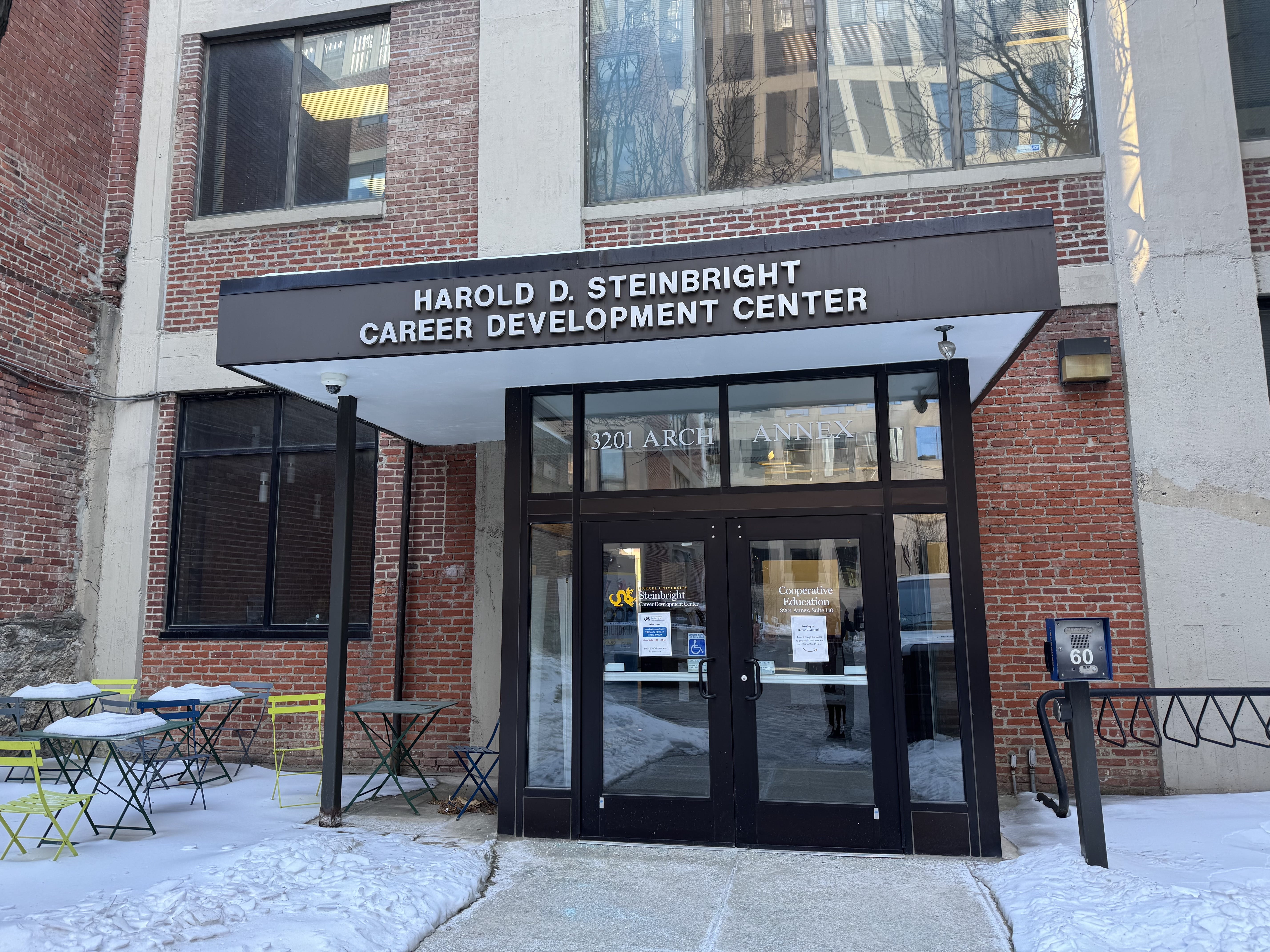Drexel Supports Establishment of Vibrant, Safe Vending District
 By Frank Otto
By Frank Otto
To help keep Drexel’s longtime food truck culture thriving, the University hopes to create a district that would establish safe, outdoor food court-esque areas around campus.
Drexel is working with the office of Philadelphia Councilwoman Jannie L. Blackwell to create a “vending improvement district.” It would create several designated vending areas and ensure all vendors on Drexel’s campus are licensed and practice proper food-handling techniques. The ordinance would also clear Drexel’s busiest crosswalks for pedestrians.
“It’ll create outdoor areas where people can pick from a variety of options and enjoy the food of their choice,” said Brian T. Keech, senior vice president of Drexel’s Office of Government and Community Relations.
“The new vending district proposed under this legislation will provide several areas on Drexel’s campus for vending, which will enhance pedestrian safety, particularly along Market Street at the intersections of 33rd and 32nd streets,” said Blackwell.
The ordinance before City Council is similar to one passed earlier this year for Temple University’s campus and another that passed in the 1990s, setting up a vendor-friendly zone on the University of Pennsylvania’s campus.
All current regular food trucks and vendors can be accommodated under the proposal, with a place planned for each of the current vendors in the new spots.
Areas for the food trucks and vendors would be designated in several locations across the University:
- Arch Street between North 32nd and 34th streets, near Buckley Green and Buckley Recreational Field, as well as on North 33rd Street along Buckley Recreational Field
- Off North 32nd Street between Caneris Hall and University City Crossings
- On the side street north of the Daskalakis Athletic Center, off of North 34th Street
- Ludlow Street between the Main Building and the Bossone Research Enterprise Center

Vending on Ludlow Street would remain unchanged, with the area on Arch Street and 33rd Street containing the bulk of the remaining food trucks and carts.
Lighting and seating options as well as trash receptacles and electrical hook-ups will be provided by the University at the new designated locations.
“This will improve the public outdoor space consistent with our public realm plans. Concentrating some of the vendors around Buckley Green, the volleyball courts and near residences with tables and seating will be an attractive option for our students,” said Dimitrios N. Boufidis, director of business and city affairs in the Drexel Office of Government and Community Relations.
The Philadelphia Department of Licensing and Inspection will continue to make sure the vendors follow city codes and have their yearly licenses. Additionally, trucks would have to move every day at 10 p.m. to ensure that the areas they occupy can be properly cleaned and maintained.
“From a public realm perspective, between clearing pedestrian walkways and requiring the best sanitation practices, it’s going to improve public safety,” Keech said.
Inspections have always been a part of the city’s codes and will continue to be conducted under the new ordinance. A $2,750 annual fee will be required for vendors in the district, which has been the standard for food trucks across the city.
Keech feels the ordinance will have a positive impact overall for the campus and fits in well with the University’s strategic plan. It will be a move similar to the food trucks’ shift to Ludlow Street when 32nd Street between Market and Chestnut streets was closed to make way for Perelman Plaza.
“To create pedestrian spaces that work for a growing University, places like the Perelman Plaza, it’s necessary to make changes from time to time,” Keech said. “We want to make spaces that work well in the public realm.”
In This Article
Contact
Drexel News is produced by
University Marketing and Communications.
